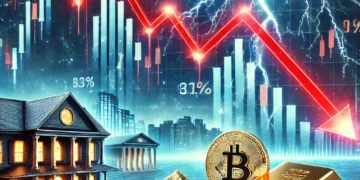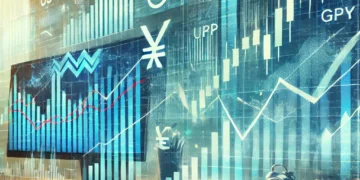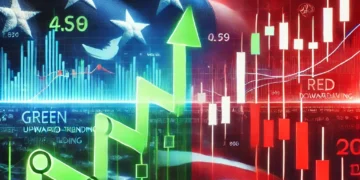The Impact of Widespread Conflict on Global Stock Markets
Introduction
The ongoing conflict between Russia and Ukraine has already shaken global political and economic stability. If this conflict were to escalate further or spread to involve more nations, the potential ramifications for the global stock market could be profound and multifaceted. This article delves into the expected effects on the stock markets, the potential financial winners and losers, and a detailed analysis of the pros and cons of such a geopolitical event from an investment perspective.
Market Volatility and Economic Impact
An expansion of the Russia-Ukraine conflict would likely lead to heightened volatility across global financial markets. Historically, geopolitical tensions tend to result in significant market fluctuations, as investors react to uncertainty and potential threats to global economic stability. For instance, escalation could disrupt global supply chains further, particularly in energy and agricultural sectors, given both countries’ roles as major suppliers in these markets. This disruption would likely lead to increased commodity prices and drive inflation, putting additional pressure on economies still recovering from the effects of the pandemic. Stock markets could see widespread sell-offs in riskier assets and a flight to safety, with investors seeking refuge in traditional safe havens like gold and government bonds.
Potential Winners and Losers
In every crisis, there are those who stand to lose and those who may gain. In the case of a widespread conflict involving Ukraine and Russia, industries such as defense and cybersecurity are likely to see increased demand, potentially boosting stocks in these sectors. Companies that specialize in renewable energy might also experience growth, as countries seek alternatives to Russian oil and gas. On the other hand, European stocks, particularly in countries dependent on Russian energy, could face severe impacts. Increased uncertainty and risk could lead to capital outflow from emerging markets, compounding the economic difficulties in these regions.
Financial Impact on Investors
For individual investors, the volatility spurred by such conflicts can lead to significant losses, especially for those exposed to affected regions or sectors heavily reliant on stable geopolitical conditions. Conversely, savvy investors who anticipate market movements and hedge their investments accordingly could protect their portfolios or even profit from the turmoil by investing in sectors that traditionally benefit during times of conflict, such as commodities or certain tech sectors.
Pros and Cons of Geopolitical Tensions in Markets
Pros:
- Opportunities for Hedging: Investors can hedge risks by investing in assets that typically perform well during conflicts.
- Potential Gains in Specific Sectors: Certain industries like defense, cybersecurity, and alternative energy may experience growth.
- Market Corrections: High volatility can correct overvalued markets, providing buying opportunities at lower prices.
- Strengthening of Safe Havens: Traditional safe havens like gold and government bonds usually strengthen, providing portfolio stability.
- Diversification Benefits: Highlights the importance of diversification across asset classes, reducing potential risks.
Cons:
- Widespread Market Declines: General market downturns can lead to substantial losses for unprepared investors.
- Increased Volatility: Makes market timing more difficult and can deter long-term investment strategies.
- Impact on Global Supply Chains: Could exacerbate inflation and reduce economic growth, affecting global markets.
- Capital Flight from Emerging Markets: Could destabilize economies already vulnerable to external shocks.
- Long-Term Uncertainty: Prolonged conflicts can lead to sustained market uncertainty, affecting retirement funds and long-term investment plans.
Conclusion
The potential spread of the conflict between Russia and Ukraine poses significant risks to the global stock markets, impacting everything from commodity prices to sector-specific stocks. While there are opportunities to hedge and possibly profit from the situation, the overall economic impact is likely to be negative, highlighting the complexities of investing in times of geopolitical instability. Investors must remain vigilant, adapt their strategies to changing conditions, and maintain a well-diversified portfolio to mitigate potential risks. The key to navigating such turbulent times is staying informed and prepared to adjust as new information unfolds.

























